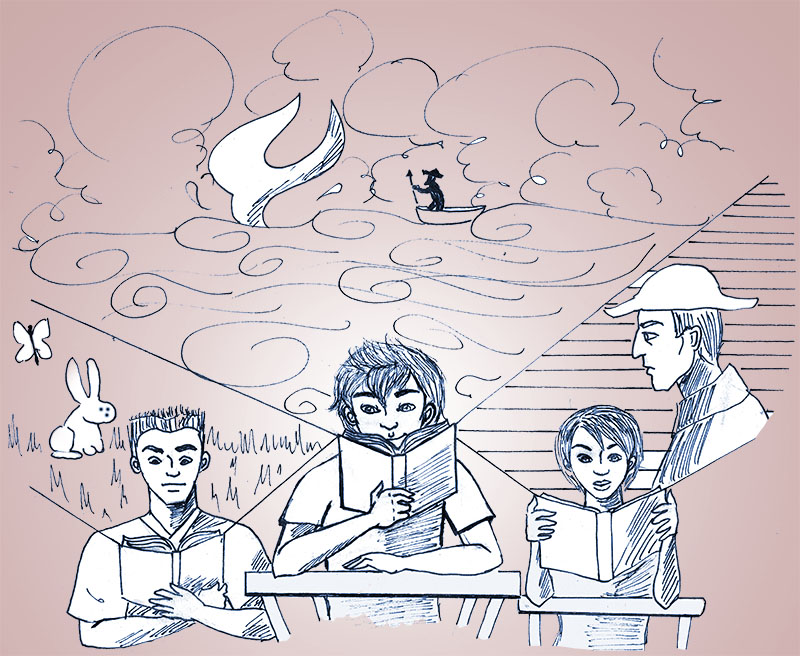

When teens were little kids, they may have loved flipping through picture books. They always had time for reading, but as they grew older, they simply got busier and busier until reading was fully out of their schedule. Teachers are always telling their students to read, but when will they ever have the time? Factors that may have attributed to this change include less time (because of sports practices, music lessons, hours on homework, other extracurricular activities, etc.) and technology. More time spent on phones, laptops, video games, and television take away from reading books.
Students at Aragon have to read books for their English classes, but many still take time to read for fun outside of school. Anna Lapid, the Aragon librarian, remarks, “Obviously, as a librarian, I believe recreational reading has a huge impact on literacy and student achievement.” People can travel to different parts of the world, learn new lessons that life cannot teach by itself, gain a new perspective on the world, and increase their vocabulary, just by reading a book. “My favorite book is Watership Down,” says Holly Dietz, moderator of Aragon’s Never-Ending Book Club. “It was the first book that showed me the journey literature can take you on.”
Reading can help calm students down. “I feel relaxed when I read,” reveals sophomore Nicole Vasquez. When reading a book, it can be soothing because thinking about something else when stressed generally relieves tension. Reading also helps one’s writing abilities. The more one is exposed to many different books, the more techniques one will pick up on how to create a better piece of writing.
However, some teachers, parents, or adults in general are forcing kids to read books they don’t want to read, or they’re simply forcing them to read. “I lament the loss of a greater variety of choices assigned the English department for summer reading. I wish students could choose to read whatever they want for summer assignments,” Lapid says.
Many authors also reveal that they think teenagers should read what they want, instead of having assigned reading for school. Jeff Kinney, writer of the Diary of a Wimpy Kid book series, shared in an interview, “Whatever [book] captures their interest, in whatever format. Because kids’ interests will shape the people they will become.”
Some students simply dislike reading for pleasure because it takes away from other things they could be doing, whether it be other leisurely activities or even homework. “I hate it… [Reading] takes too much time,” says junior Daelyn Ruiz. “There’s more homework,” sophomore Sabrina Raji says, “and other things to worry about than just sitting and reading.”
Surpisingly, studies show that the average ATOS (Advantage/TASA Open Standard, a system developed to group books based on a low-level or high-level reading scale) reading level for the top 40 books for freshmen through seniors in 2011 was 5.3. That translates to a fifth grade reading level for a high school student.
On the flip side, there are also those students who love to read and always make time for it. “It’s another world you can get to,” freshman Valerie Litz says. “It’s a break from reality.”
“Teaching English has made me appreciate the classics. It made me see the value of reading a book more than once,” Dietz says. “When I read To Kill a Mockingbird a second time, it helped me understand it more,” freshman Hannah Koury agrees.
Whether voluntary or not, students at Aragon tend to read on a regular basis. For those who do enjoy reading, they can take advantage of the many benefits that reading can offer.



